I Still Do I Still Do What She Says
Why do women still change their names?
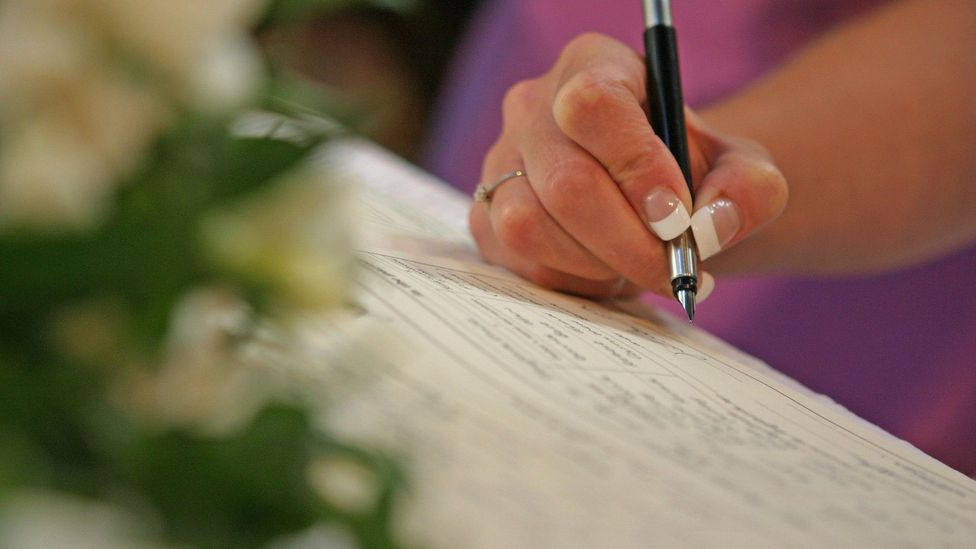
Taking a husband's name emerged from patriarchal history. So why do so many young western couples still follow the tradition?
P
Planning a wedding during a pandemic is riddled with uncertainties, but for 30-year-old Lindsey Evans, there's one thing she's clear about. "The closer we get to the wedding, the more positive I am that I want to take his last name," says the Californian, who runs a lifestyle-media company with her partner and is due to tie the knot in July 2021.
In the US, most women adopt their husband's family name when they get married – around 70%, according to one of the largest data analyses in recent years. For British women, the figure is almost 90%, according to a 2016 survey, with around 85% of those aged between 18 and 30 saying they still follow the practice. Although these figures are lower than they were a generation ago, it's clear it remains a strong cultural norm in large parts of the western world, despite today's more individualistic and gender aware era. While definitions of feminism vary, 68% of women under 30 describe themselves as feminists in the US and around 60% in the UK.
"It is quite surprising... [so many women adopt the man's name] since it comes from patriarchal history, from the idea that a woman, on marriage, became one of the man's possessions," says Simon Duncan, a professor in family life at the University of Bradford, UK, who has been researching the practice of male name-taking. He describes the tradition as "entrenched" in most English-speaking countries, even though the concept of "owning" wives was scrapped more than a century ago in Britain, and there is currently no legal requirement to take a man's name.
Much of western Europe also follows the same pattern (notable exceptions include Spain and Iceland, where women tend to keep their birth names when they marry, and Greece, which has made it a legal requirement for wives to retain their names for life since 1983). Even in Norway, which is regularly ranked one of the top countries for gender equality and has a less overtly patriarchal history, the majority of married women still take their husband's name. There, however, around half of name-takers keep their maiden name as a middle name, which functions as a secondary surname.
"The question remains... is this just a harmless tradition, or is there some sort of meaning leaking from those times to now?" asks Duncan, who recently teamed up with academics at the University of Oslo and the University of the West of England to delve into the reasons for its persistence.
There are, of course, numerous personal reasons a woman might want to lose her maiden name, from disliking how it sounds, to wanting to disassociate herself from absent or abusive family members. But through an in-depth analysis of existing research, and detailed interviews with newly married and engaged couples in the UK and Norway, Duncan's team identified two core motivators driving the tradition. The first was the persistence of patriarchal power (whether that was obvious to the couples or not). The second was the ideal of the 'good family' – the sense that having the same name as your partner symbolises commitment, and this ties you and any potential children together as a unit.
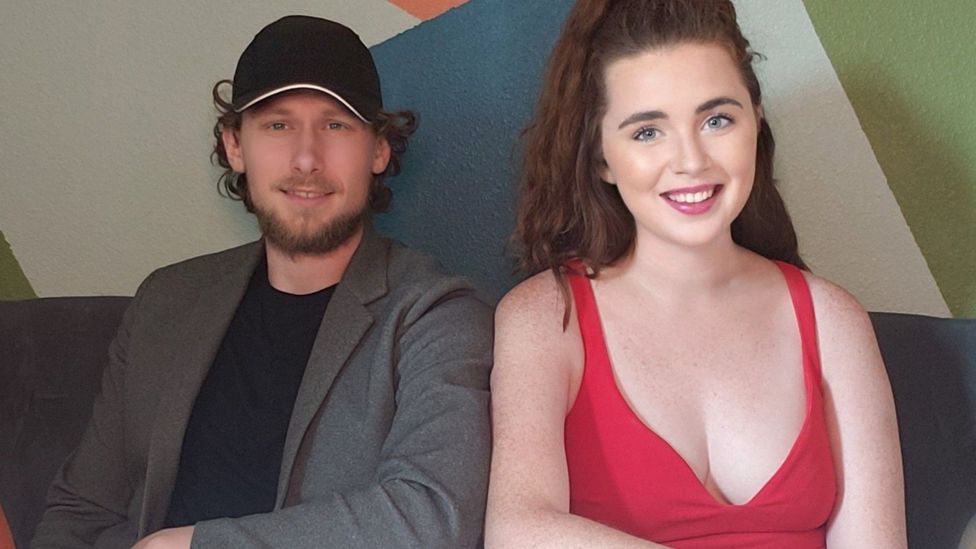
Lindsey Evans says she wants to change her name - and that the decision came from her
Some couples uncritically accepted the practice because it was conventional, while others actively embraced the idea of passing on male names. "Some men still insisted on it – the reproduction of that sort of patriarchal assumption from the past," says Duncan. "Some women go along with that or internalise that. So, we found people who say they are really looking forward to being a 'Mrs' and changing their identity to that of their husband."
His team's research paper suggests that women changing their names is, unsurprisingly, connected to the survival of other patriarchal traditions, such as fathers giving away brides and men being more likely to propose. Duncan says that these elements have come to form part of the optimum "marriage package" for many couples.
"It's part of the romance," agrees Corinna Hirsch, a German marketer living in Stockholm, who took her husband's last name when they married last year. "We slept in separate rooms the evening before the wedding. I had something old, blue, borrowed and new. My dad and husband gave a speech, but I didn't." She believes these traditions helped her and her partner develop a deeper bond, even after more than eight years together. "We didn't expect that we would feel any closer after the wedding, but I think having this big wedding and having one last name did the trick."
The second core trend observed by Duncan's team is more about public perceptions. They concluded that taking on a partner's name remains seen as a way to display your commitment and unity to the outside world.
"I feel like it gives us an identity as a family and not just individuals," agrees Lindsey Evans in California. "We have our own first and middle names, which make us our own people, but having a joint last name makes us more of a unit."
Duncan's research found this 'good family' narrative was especially strong among women who'd had children. Even some of those who initially declined to adopt their male partner's family name upon marriage switched their approach after giving birth.
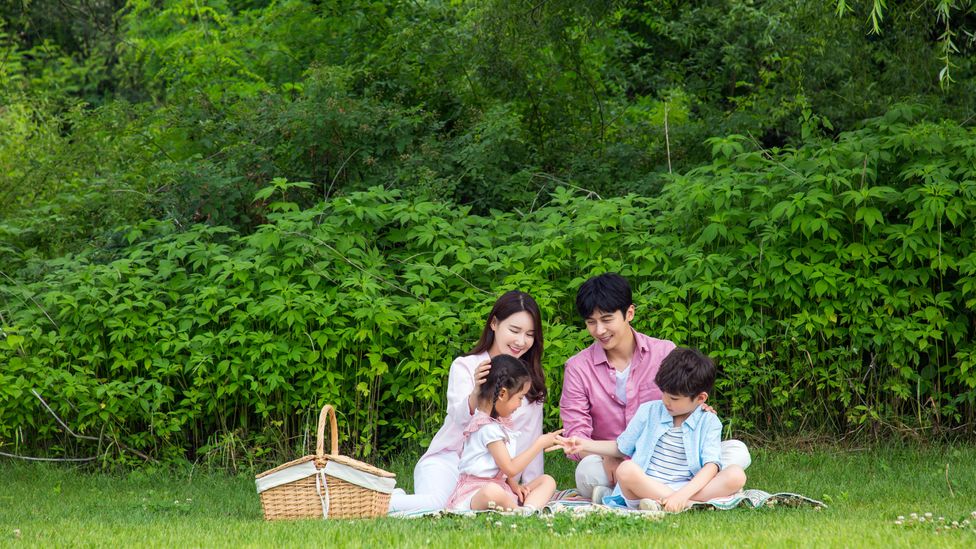
The researchers found the 'good family' narrative was a key factor in women changing their names
"I wanted to do it to have a better connection with my kid, not just in a loving relationship type of way, but on paper," reflects Jamie Berg, a US-born dancer and gymnast living in Oslo. After keeping her own name for several years, largely because it was important for her professional identity, she added her husband's name to her passport and other formal documents when her son was born, "so all three of us would have the same last name". This, she hoped, would also avoid administrative hassle, for example when travelling abroad with her child.
Duncan's study highlighted another common feeling among many parents, that children might end up confused or unhappy as a result of parents having different names. But he argues that while nonconformity can create adult discomfort, sociological research suggests a limited impact on children, with most not confused about who's in their family, regardless of their surname.
Academics are split on how the name-changing norm plays against a backdrop of efforts to achieve gender equality.
Duncan describes it as "quite dangerous" – whether the couples doing it are actively embracing the tradition, or simply observing it by default. "It perpetuates the idea that the husband's in authority... reproducing the tradition that the man is the head of the household," he says.
That argument is strongly supported by women like Nikki Hesford, a business owner from northern England. She is now divorced, but refused to take her former husband's name when they got married, and says she's shocked how few wives do the same.
"Women complain that they end up being the primary caregiver, the one who has to leave work when a child is sick, the one who had to go to hospital appointments, the one whose career suffers... but they've set that precedent at the start by saying: 'You're more important than me, you're the primary and I'm the secondary,'" she argues. "Some people say: 'You're overthinking it, it's just nice tradition and it doesn't really mean anything', and I disagree."
However, Hilda Burke, an Irish couples counsellor and psychotherapist based in London, believes that women who reject name-taking shouldn't be too quick to judge others. She notes that "old-fashioned romance" concepts, long reinforced by film, literature and magazines, have become amplified in an age of social media. This means women continue to be influenced by these kinds of messages, despite more gender-positive, feminist perspectives being given a greater platform. "For so many influencers, it's very much part of their message or their profile, this whole narrative around a boyfriend and then the huge engagement, the honeymoon," argues Burke. "Even if those women are kind of identifying as a feminist, that kind of lifestyle that they're portraying is very much a sort of romantic ideal."
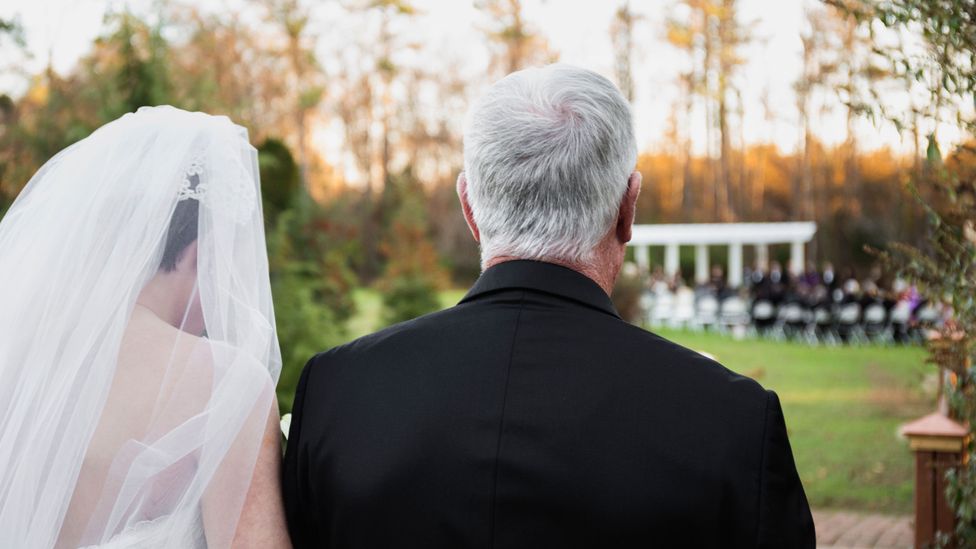
Hilda Burke suggests name-changing remains part of the traditional marriage narrative romanticised on social media
She says that for many, switching to their husband's family name is also a pragmatic choice – for example, to appease older relatives or avoid having to explain themselves at the school playground – and doesn't mean that these women aren't pushing for gender equality. "This is an example of the dissonance of having maybe a principle, having a feminist ideal, but then getting down to the nitty gritty of daily life," she says. "They'd say: 'You know what? I'm still working. I'm still getting promoted. I haven't given up. So, you know what? On the bigger scale, I'm still feminist'."
Another argument is that feminism is ultimately about giving women free choice. This means as long as they can decide what name they'd like (rather than it being forced on them by their partner or society), it shouldn't matter whether that is in keeping with, or going against, patriarchal norms.
"He never told me: 'I need you to take my last name', but instead I was the one who brought it to the table," says Evans in California. "As a feminist, I am able to make the decision that is best for me without worrying about gender roles."
How prevalent the male name-taking tradition will remain in the future is hotly debated by researchers. There is little predictive academic research, although there are signs that - despite the slow progress to date - both women and men are becoming increasingly open to alternatives.
In the UK, a 2016 YouGov poll of more than 1,500 people showed that 59% of women would still like to take their spouse's surname upon marriage – and 61% of men still want them to do so. Although these figures are high, they're around 30% lower than the proportion of Britons who currently go through with the tradition. A separate survey showed that 11% of 18-to-34-year-olds in the UK are now double-barrelling their surnames when they get married. This practice was traditionally the preserve of upper-class British families, but gender equality is emerging as a motivator within couples with more diverse backgrounds.
"We talked about it beforehand and decided that because we shared everything else in our lives it made sense to share names too," explains Nick Nilsson-Bean, a British communications manager living in Malmö, in southern Sweden, who has the same double-barrelled surname as his wife. "It felt a bit archaic and old fashioned to just take my name."
In the US, growing numbers of women are also opting for unhyphenated double surnames due to the need to remain searchable online for professional reasons. Meanwhile, some couples blend their names or come up with new ones to share, and some men adopt their wives' names, although both phenomena remain unusual.
"I wasn't hung up on all the masculinity and patriarchal [rubbish], and I knew how important my wife's identity was to her," says Ciaran McQuaid, a 39-year-old British engineer who is one of the rare few to switch to his wife's name. "I work within the construction industry and I have to deal with quite macho attitudes, but I'm not the type of person who gets bothered by it."
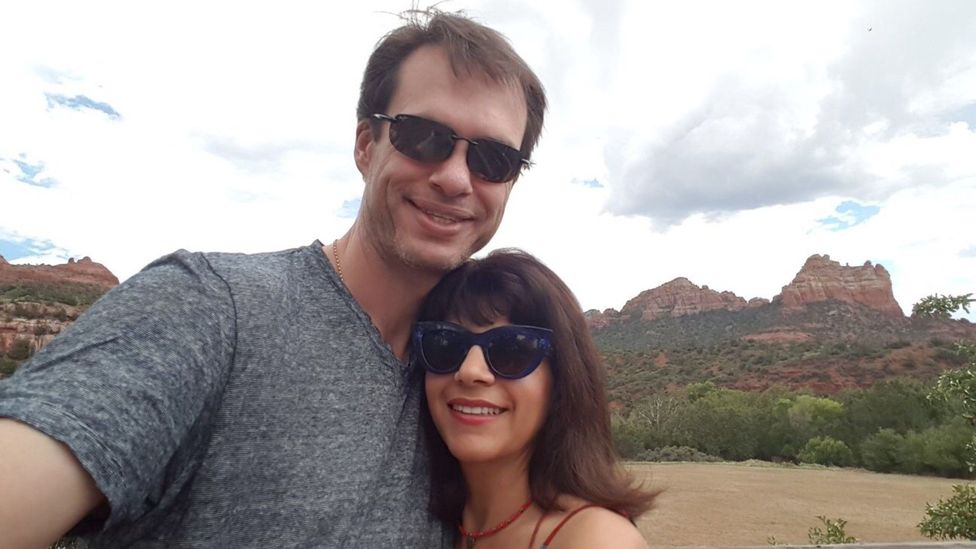
America Nazar says changing her name would have caused an awful lot of unnecessary admin
With women tending to marry later – the average age is now 35 or older in European countries including the UK, Italy and Spain, and around 28 in the US – this may also have an impact on future name choices. Research from Norway and the US suggests that older, more educated and economically independent women are more likely to keep their birth names, while the practice is less popular with younger, lower-paid women and within the African-American community.
"I already owned my house. I had a degree, my car, all different things. So, if I had to change my name, then subsequently I'd have to change my name on all those titles and licenses," explains America Nazar, a dentist based north of Oslo, who didn't switch her name when she got married last year. "It just makes it a bit more complicated and it's not very necessary, in my opinion."
Other researchers point to the influence of the LGBTQIA community, where there already tends to be more flexibility around name changing. Dr Heath Schechinger, a psychologist and therapist with a clinical post at the University of California, Berkley, predicts that heterosexual couples may be encouraged to keep their own names as "the concept of 'family' expands" to include more LGBTQIA and even "two-plus partner unions", making it more common to break traditional norms. "While it is unlikely partners will ever have complete autonomy about their name choices without fear of societal or familial repercussions, an increasing number of people are, and will continue, to make the choice to deviate from the norm," he argues.
"It's time for this to become an open-ended discussion within partnerships, and not something that is assumed or pre-determined," agrees marketing manager Verity Sessions, from Brighton, England, who kept her own name when she married her wife Alice Maplesden. "Some of my male friends have decided to take their wife's family name and I love them for that," she says. However, she says she understands that other couples "do just love a tradition" or might opt for naming conventions that simply "make a family tree a bit easier to work out".
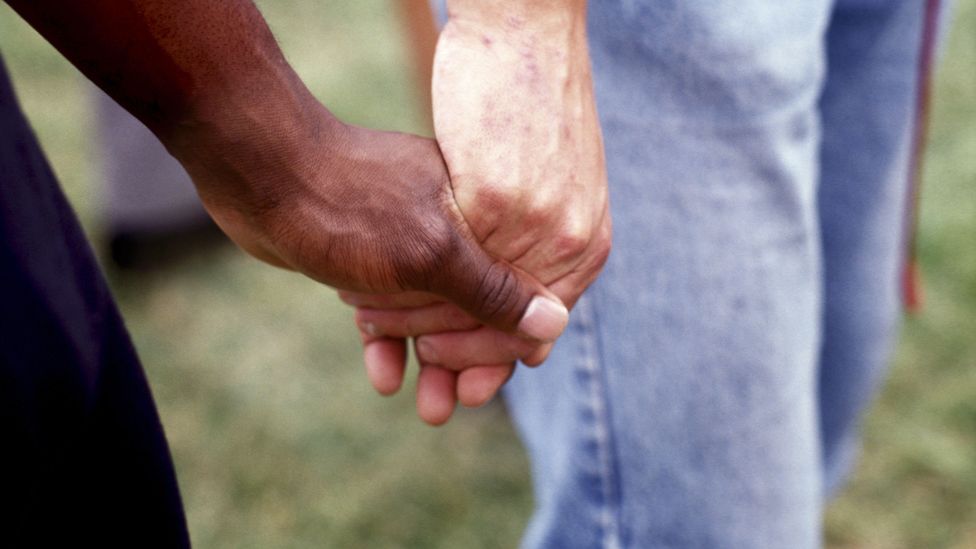
As the concept of family evolves, more people will make decisions that work for them, some experts say
In London, psychotherapist Burke also believes that more diverse naming conventions will start to bleed into society. But as women continue to battle for equal pay, and are more likely to be facing job insecurity and performing more childcare as a result of Covid-19, she argues that many "people feel like there are other battles that are more important right now". "It is going to come in time, when other things are made more equal."
Fans of the male name tradition like Corinna Hirsch, however, hope it won't die out. "It would be nice if [it] continues, but only if it's not forced," she says. "You like traditions because they make you feel all warm and fuzzy? Go for it."
I Still Do I Still Do What She Says
Source: https://www.bbc.com/worklife/article/20200921-why-do-women-still-change-their-names